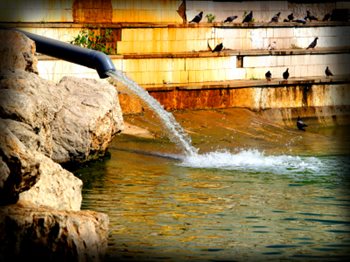Mineral exploration and development continues to expand and develop into new territories using new technologies as well as tried and true practices. One of the most common practices is hydraulic fracturing or “fracking.” Although it is highly successful in extracting elements contained deep within the earth, fracking comes with inherent risks to the environment and moreover our water supply. Plenty of opposition exists where fracking projects take place or are set to begin.
The adding of
drilling fluids is required to ensure that the process runs smoothly and successfully. Without the adding of these drilling fluids, wells can collapse in upon themselves, become jammed, or not produce. So what exactly can be done to preserve our water tables from the risks associated with fracking?
Huge volumes of water are required at the onset of a fracking project. Starting by drawing up the quantities needed from the local water table is often how a project will start. But rather than depleting a local water source, companies could re-use wastewaters from previous sites or have water trucked in from other sources. One of the major objections to fracking stems from this very issue of depleting the local water table to the point of harming farmlands and natural habitat.
Adding of drilling fluids. Once the water needed is pumped up or delivered to the well site, the water is combined with chemical additivesand what’s called proppant to make the hydraulic fracturing (HF) drilling fluid. It is at this stage that the water becomes volatile in terms of its toxicity. The chemicals added are highly toxic and contain various combinations of chemicals designed to aid in the extraction of resources. If leaked into the environment, these additives are a major safety concern.
The main danger is the release of these toxins into the local surface and ground water through on-site spills and/or leaks, and furthermore, as the water travels, into rivers, lakes, and oceans. These risks can be minimized through on-site precautions, careful and attentive workers, as well as choosing the least-harmful additives.
Safe handling of wastewater.
Wastewater can be dealt with in several ways. One commonly used method of disposal is through underground injection. Basically what happens with this method is the wastewater is pumped back down into underground cavities and sealed up with a plug. The danger here is the possibility of the wastewater leaching or leaking into the water table as time passes.
Another method is the treatment of wastewaters, followed by disposing it into surface water bodies. The danger here is the by-products produced when treating waste waters, and contaminants reaching drinking water due to surface water discharge or inadequate treatment.
And lastly, the practice of recycling wastewaters in other hydraulic fracturing projects is ideal because of the amounts of water required, as well as not releasing contaminated water into the environment.
